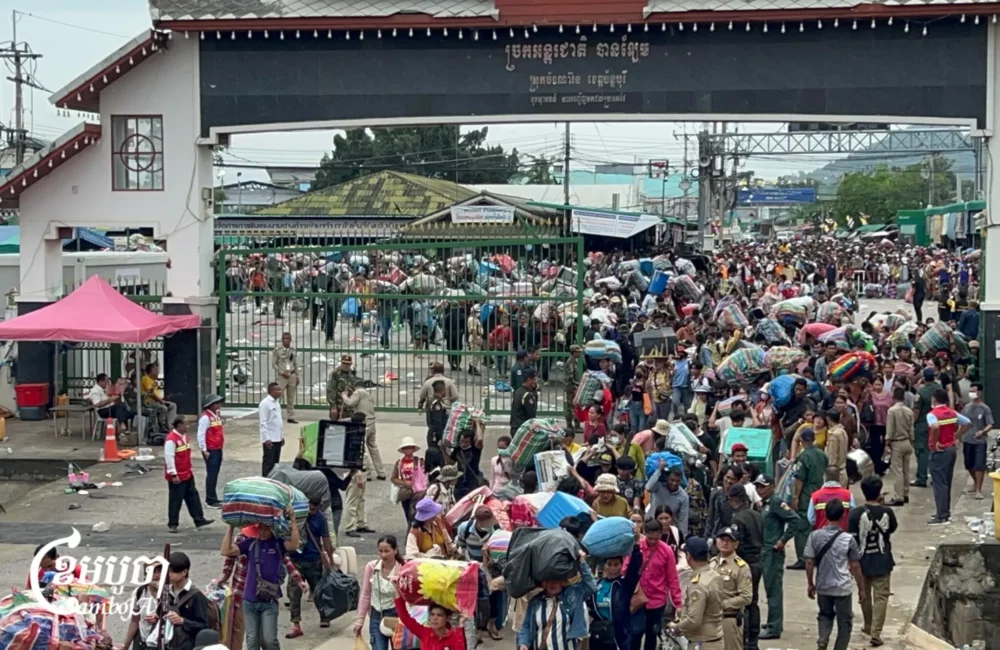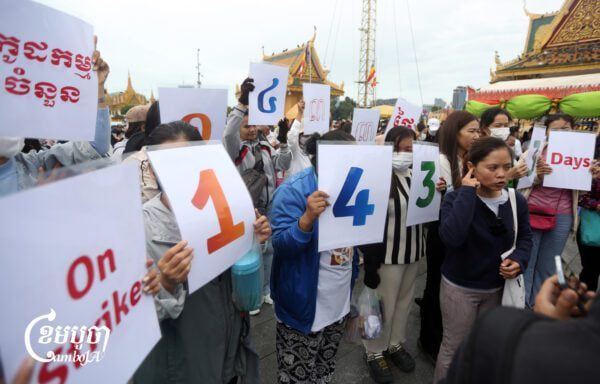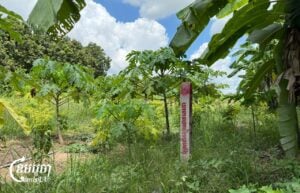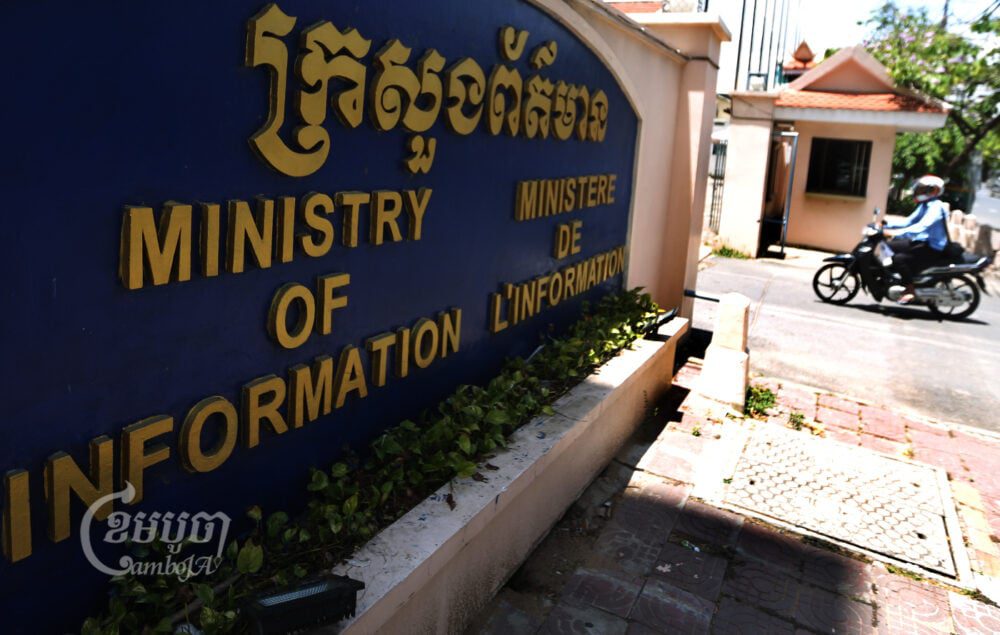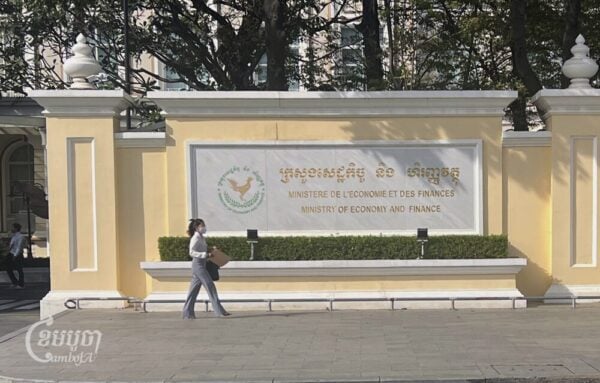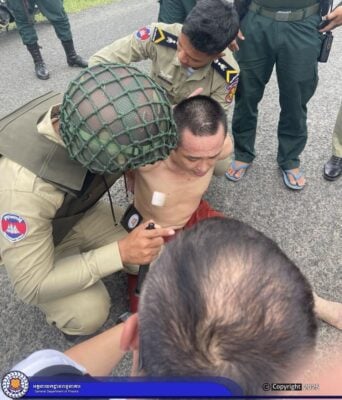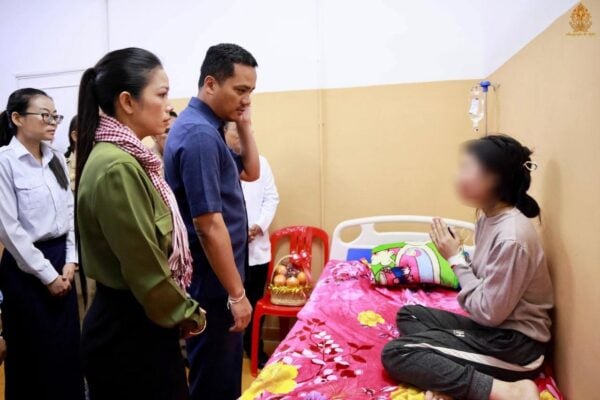Without social protection, even short periods of unemployment will worsen living conditions for migrant households, research found, as 30% of them were already poor and in debt.
The Cambodia Development Resource Institute (CDRI), in its Rapid Policy Note published on August 29, reported that as of August 11, some 910,000 Cambodians had returned home. Roughly 30% of migrant households were classified as poor, and if returning migrants are assumed to be unemployed while increasing household consumption, the poverty rate among these households could climb to around 50%.
The report recommended that the government identify and prioritize support for these households through existing social protection mechanisms, such as the IDPoor program. It further suggested that a temporary rural public works program could serve as an alternative or complement to cash transfers.
Government spokesperson Pen Bona declined to comment when asked whether the government would consider social protection measures for returning migrant workers, referring questions instead to the Ministry of Labor and Vocational Training (MLVT).
Its spokesperson, Sun Mesa, as well as Social Affairs Veterans and Youth Rehabilitation Ministry spokesperson Touch Channy, declined to comment, noting that it is not under their jurisdiction.
Speaking at an Occupational and Employment Perspectives program, Labor and Vocational Training Minister Heng Sour said the government is looking to the SME and informal sectors to help absorb returning workers, particularly those over 40 years of age.
Both Industry, Science, Technology and Innovation Ministry spokesperson, Heng Sokkung, and Economy and Finance Ministry spokesperson, Meas Sok Sensan, did not respond by the publication time.
According to the labor ministry, about 920,000 Cambodians returned from Thailand following the July 24 border clash, including an estimated 720,000 migrant laborers, as of August 29.
Between July and August, only 21% of the 720,000 returning migrant workers secured employment, leaving nearly 500,000 jobless.
This meant an estimated 405,000 migrants left without employment.
A former construction worker in Thailand, Hout Sinal, 36, who lives in Banteay Meanchey province, earned around $370 a month in Thailand, where she resided for three years. A Khmer migrant, she came back a month ago as she feared the border conflict.
Upon returning to Cambodia, Sinal had been looking for a job, but has not been able to secure one yet. Although she came across the government’s vacancy announcement, she did not know how to apply.
“I can’t find a reliable job yet, and some places don’t wire salaries to workers,” said Sinal.
Despite not having a job, Sinal said she is required to pay her debt as usual, as the credit officer comes every month. She hoped to have a farm but did not have sufficient capital.
“[I] hope the government offers support so that I can have the capital to run a livestock farm in our home country,” Sinal added. “In our country, I don’t have any network, and I often get exploited. But in Thailand, I found a job. Nonetheless, there is exploitation in both countries.”
Py Rithy, 23, a migrant worker, who returned to Cambodia a month ago after working in a Thai factory for $300 a month, said he lived there for nine years. The Battambang province resident said he might have a job in Prey Veng province as he was asked to come in for an interview in the third week of September.
He secured the interview after dialing 1297 (MLVT’s hotline), similar to what he did in Thailand last month.
However, his wife, Seng Sreynut, 23, a migrant worker who returned to Cambodia with him, has not been able to secure a job, stressing that she has debts to pay. She used to work in a garlic processing factory in Thailand.
“[I] suggest the government offer more job opportunities. There are only a few vacancies, and migrants don’t have any work,” said Sreynut, who lived in Thailand for about one year, earning $247 a month. “If the conflict ends, and I still can’t find a job, then I will go back to Thailand.”
Khun Tharo, program manager for the Center for Alliance of Labor and Human Rights (CENTRAL), emphasized that migrant workers have a significant impact on the country’s economy, as there are nearly one million of them, and often send back money to sustain their families.
He urged the government to consider executing a budget to support them financially, expand the scope of the social protection program by identifying and registering migrant laborers in the system, and help minimize health costs.
The government should also examine skilled and unskilled migrant workers, and decide if a recognition certificate for their skills should be given despite not undergoing soft skills or vocational training. This will help with job matching, particularly for those in the construction, agriculture, and food processing sectors.
The first priority is food and second is job vacancies, he said, as some indicate that they cannot get a job. The third priority is paying their debt. “Without a job and income, migrants can’t afford to pay their debt,” he said, based on their research to evaluate the fundamental needs of migrants from Thailand.
Tharo noticed that some migrant workers are also looking for vocational training.
“It is hard for them to find a job as there are not many job opportunities in the country, and matching a job with their skills remains a struggle,” Tharo said. “If there is a lack of jobs and the conflict continues, the trend of migrant workers going back to Thailand will continue, even though they know that they are at risk, are exposed to fraud, human trafficking, exploitation, and could get arrested.”


